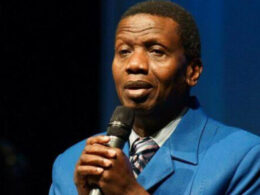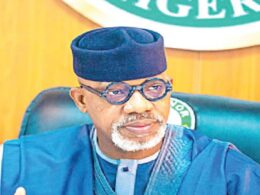The case, filed by the Incorporated Trustees of New Kosol Welfare Initiative, challenges the legality of the Federal Government’s proposed taxation policy known as the Expatriate Employment Levy (EEL).
Abuja, Nigeria – The Federal High Court in Abuja has summoned the Minister of Interior, Dr. Olubunmi Tunji-Ojo, and the Attorney-General of the Federation (AGF), Lateef Fagbemi, SAN, to explain why the implementation of a proposed taxation policy for expatriates should not be halted.
In a ruling on a motion ex-parte brought before the court, Justice Inyang Ekwo ordered the defendants to appear in court within three days. The court also directed that the minister and AGF be served with the motion within the same period.
The case, filed by the Incorporated Trustees of New Kosol Welfare Initiative, challenges the legality of the Federal Government’s proposed taxation policy known as the Expatriate Employment Levy (EEL).
Represented by a team of lawyers led by Paul Atayi, the plaintiff filed a motion for an interim injunction to restrain the government from implementing the EEL. The group argues that the policy is unconstitutional and harmful to the nation’s economy.
Raphael Ezeh, Programme Implementation Coordinator of the group, stated in a supporting affidavit that the Federal Government unveiled the taxation policy on February 27, 2024. The policy mandates companies employing foreign expatriates to pay significant levies annually:
$15,000 (₦23 million) for directors.
$10,000 (₦16 million) for non-directors.
The policy also imposes penalties for non-compliance, including:
₦3 million fines for late registration or renewal of expatriates.
₦1 million fines and/or five years’ imprisonment for inaccurate reporting.
“Anti-People Policy”
Ezeh described the taxation regime as “anti-people” and detrimental to Nigeria’s economic growth, warning that it would harm both corporate bodies and individuals. He noted that taxation under the 1999 Constitution requires collaboration between the executive and legislative arms of government.
The plaintiff argued that the executive arm lacks the sole authority to impose such taxes and accused the Interior Ministry of attempting to implement the EEL without proper legislative approval.
After hearing from the plaintiff’s counsel, Patrick Peter, Justice Ekwo ordered the defendants to show cause why the court should not grant the plaintiff’s prayers. The judge set January 16 as the hearing date for the defendants to respond.
The Ministry of Interior had earlier suspended the EEL’s implementation to allow consultations with stakeholders, including the Nigerian Association of Chambers of Commerce, Industry, Mines, and Agriculture.










Join our Channel...